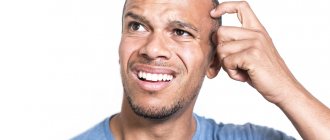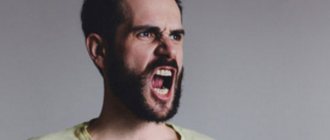The evolution of freedom of choice
Actually, what is freedom of choice? In a broad sense, this is the right of a person to determine his destiny in accordance with his own desires, tastes and beliefs. The complete antithesis of freedom is slavery. A position in which a person cannot choose anything at all. He eats what he is given, lives where he is allowed, does what he is told. The slave does not even have this seemingly natural right to love, to choose the person with whom he wants to be.
And the further a person goes from slavery, the more opportunities he has to choose. Family. Location. Work. Lifestyle. Religion. Political beliefs.
Freedom of choice in no way means permissiveness. It does not abolish discipline, does not abolish responsibility to society, and does not abolish the sense of duty. Moreover, it presupposes full awareness of the consequences of one’s actions.
Is everything that bad? No free will and choice?..
I disagree here.
1. There is always a choice. At least in how we react to what is beyond our control. If an unfavorable event occurs, then we can be sad, angry, angry, or we can accept it, learn lessons, and respond positively to it. The reaction to events is always our choice. Of course, the reaction to events does not appear out of nowhere, it is determined by your life experience and your nature, which is also not a purely process controlled by us, but still...
2. If we look at examples from real life, we can see many people who, seemingly despite fate and circumstances, achieved success, became happy, and were cured of illnesses. Only their willpower and a huge number of actions led them to the desired result.
3. If we accept the lack of choice and take a position in which nothing depends on us, then this has an extremely detrimental effect on our mood, motivation and overall desire to live. It becomes too sad, longing fills our heart, and our hands give up. This is also not just like that: within us, in fact, there is a mechanism that triggers such a reaction, and this is no coincidence.
We can indeed find evidence for both theories.
Choice and responsibility for it
Even in childhood, everyone heard a fairy tale in which a hero, standing in front of a stone, read: “You will go left... You will go right... You will go straight...”
This is, in fact, what human freedom of choice looks like. Awareness of opportunities and acceptance of responsibility for consequences. After all, it would never occur to anyone that at the end of the story, faced with the fulfillment of the prediction, the hero would suddenly shout indignantly: “How can I lose my horse? Are you crazy? You never know what is written and where?!”
The situation is exactly the same with free, meaningful choice. The person looked at the prospects, thought it over and made a decision, fully aware of its consequences and accepting responsibility for them. This is precisely what distinguishes freedom of choice from permissiveness.
Actually, this is why a person receives the right to make any important decisions only after reaching adulthood. He becomes old enough to evaluate the consequences of his actions, which means he will be able to make an informed decision. The right to freedom of choice presupposes the responsibility for this choice.
Specifics of the concept of human freedom of choice
Freedom of choice is the freedom to choose from various options and opportunities the one you want. I came to the supermarket and there was an abundance of options for exercising freedom of choice. After graduating from school, you have many universities, technical schools and job options in front of you - choose any one. And so on. Naturally, a person’s freedom of choice and responsibility for this choice are inextricably linked. When there is nothing to choose, then there is nothing to be responsible for. If you were asked to buy milk, and there is only one store in the whole village, and there is only one type of milk, then you will buy this milk, there is nothing to talk about.
However, if, with the onset of adulthood, a person acquires the right to freedom of choice to buy and drink vodka, and in any quantities, as long as his money allows, then he will have to bear responsibility for this choice. Bearing responsibility is accepting the fact that every choice entails many consequences, both immediate and in the long term. In a sense, responsibility for the choice will have to be borne in any case (the consequences are objective), but whether there will be acceptance and understanding is the question.
There is also the concept of moral freedom of choice.
This is the ability to distinguish between possible choices, according to their expected consequences, as good or evil. Moreover, the moral freedom of choice developed in a person is not yet a guarantee that a person will make a choice in favor of good. No. Very often we do something unkind ourselves, knowing full well that we are not doing the action we should have chosen. This is where we talk about human free will and responsibility.
“I am a man, I have free will, I do what I want” is a well-known phrase in various variations. The trouble is, when uttering this phrase, people most often try to deceive both their interlocutor and themselves.
Human free will is the ability to make decisions and follow them.
The power of free will is measured precisely by the ability to follow one’s choice, and not by the ability to choose something in the store. In addition to free will, various desires also operate within us. And it is fundamentally important that free will in a person is stronger than all these desires. You could even say that a wish list is a torn piece of our free will that has come out of our control. If there are many such pieces or they are “big”, we can be considered weak-willed. A person wants to quit smoking, but a well-fed craving for smoking does not allow it. We want to play sports - and we’ve even made a decision - immediately the desires to “watch TV”, “sit on the Internet, there’s something interesting, I’ll check my email”, “I want to sleep in the morning”, and so on. I think the list could go on for a long time, but the essence is already clear. At the same time, the person makes an excuse that he himself does not want to quit smoking, but inside himself he understands that he simply does not have enough strength.
That’s why, while fighting for freedom of choice, we forget that it’s better not to be able to buy vodka or, say, sushi or something else, than to spend all your free money on them.
Strong human free will is much more expensive and valuable than a wide field for freedom of choice. And now you can go to the Home page
or look at other interesting posts from the heading
Personal growth and development, Efficiency .
Dictatorship or democracy
There are always supporters of the “strong” vertical of power who consider democracy and liberals to be the root of all ills. They argue that a state that makes decisions for citizens is a much more promising and reliable option than a state whose political system is based on the law of freedom of choice. Because people in general are not very smart and far-sighted, unlike the official authorities.
Doesn't sound very humane. But let's say these people are right. Indeed, there is such a hypothetical country with extremely stupid people who do not know what they want. And a government consisting not of representatives of the same short-sighted population, but of completely different people, obviously brought from somewhere far away, from places where smart people live. But is it really not the task of the authorities in this case to work on educational programs, to improve the cultural level of the country? Just as parents raise and teach a child, and do not lock him forever in the nursery, citing the inexperience and naivety of the ward.
The paradox of esotericism
The understanding of the term “esotericism” from its widespread and categorically erroneous use acquired a connotation of pop and degraded to designate a primitive obsession with otherworldly phenomena. It is difficult to talk about “esoteric” without causing false associations with Kashpirovsky and company, so let’s clarify the original meaning of this concept.
“Esoteric” - from the ancient Greek ἐσωτερικός - means secret, containing an internal, deep or hidden meaning. In contrast, there is another term - “ exoteric ”, which means something external, simplified and superficial.
Every traditional religion is an exoteric teaching that, in an extremely simplified form, conveys to its followers the esoteric knowledge underlying it. Christianity, as we know it “from TV,” is precisely exoteric in nature, and therefore looks as naive as it looks.
On the other hand, Christianity is based on a well-developed esoteric teaching, which in ancient times, under the pressure of political and social interests, was buried so deeply that even the ears no longer stick out.
A literal understanding of any exoteric teaching inevitably leads to a dead end, while a symbolic understanding can open all the doors to the essence of the original teaching. But let’s return to the topic of our article and see what the problem of free will looks like from the point of view of esotericism. I hope you can bear this last intellectual passage.
Any esoteric teaching proceeds from the fact that a person with all his spiritual troubles is just a grain of sand in the wind of an unimaginable element, devoid of any will of his own. But after this, the opposite is also affirmed - man, in his likeness to God, is endowed with his own will. That is, it is implied that a person is both “willed” and “willless” at the same time. Difficult?
Understanding this concept requires a tricky intellectual somersault. The whole point is what we consider “ourselves”.
In all previous discussions, we questioned the free will of our usual personality. And esoteric teachings answer this question quite specifically - the individual is deprived of any freedom of self-determination. No exceptions or reservations. The obvious question then becomes - is the personality the center of our essence or is there something else beyond the Ego?
Jung in his book “Man and His Symbols” gives an interesting illustration of this case - a large sphere with a small spot on its surface. The sphere represents the psyche as a whole, and the speck represents our everyday consciousness, our Ego. They are approximately in this scale ratio. The personality that we would so much like to consider significant and important is just a ripple on the waves of the world’s oceans, and not the “navel of the earth.”
And in the center of the sphere is our other “I” - more ancient, wise and powerful, which, however, remains practically inaccessible to our consciousness. Jung called it the Self, other teachings called it the “Higher Self.” And this is where the most interesting thing happens for us. It is believed that it is the Self that controls life and every choice of a person. The Hindus cite the metaphor that the individual is a little monkey on the back of an elephant, which seems to be in charge of the journey.
And now the most important question: does our “elephant” have freedom of choice? Esotericism says yes and no. On the one hand, it is the elephant that directs the entire psyche as a whole and has its own will for this, but on the other hand, this will is subordinate to the natural nature of things or, if you like, to the will of God. That is, the existing free will of the “Higher Self” is realized in voluntary
strict adherence to the divine plan. There is freedom, but it is completely spent on implementing God's will.
Thus man is free, but at the level of the Self his choice is to follow the natural order of things. And in this sense, the will of man is identical to the will of God
- this is the essence of any esoteric teaching. In India, the sages say so - “You are That.” In their deepest essence, man and God are one whole.
As Grebenshchikov sings, samsara is nirvana. Everyday life with all its joys and sorrows is also part of the great and inexorable divine plan. From the position of free egoistic will, you can suffer due to the fact that life is unfolding, perhaps, not as you would like, but from the position of a monkey, who knows his place in the nature of things, all that remains is to relax and enjoy the ride...
Freedom and the evolution of government
Winston Churchill also said that democracy is bad, but, unfortunately, nothing better has been invented yet. Because only a free being can grow and develop.
Cogs of an empire are, of course, wonderful. And in its own way, it’s also majestic. But the horizons of metal parts are extremely limited, and the desire for development is completely absent. All the screw can do is work. Or don’t work, depending on the situation. There's not much choice.
Alas, if you believe historical examples, the higher the level of development of society, the higher the level of freedom of the individual. These quantities obviously correlate.
Evolving from a slave system to a feudal system, from feudal to capitalist, the state increasingly expanded the boundaries of personal rights and freedoms of citizens.
Evolution of static states
History clearly proves that the freedom of choice of a person as a citizen and individual is the basis of progress. No dictatorship has achieved lasting success. All of them sooner or later collapsed or adapted to the changing world. Even the most famous and successful ones, such as China or Japan, existed for dozens of centuries, but practically did not develop. Yes, they were perfect in their way - just like a perfectly balanced mechanism is perfect. But their whole history is not the path of creating something new, but the endless improvement of what already exists.
And a qualitative leap in the development of these states occurred only after the boundaries of the old system were broken. The level of personal freedom of the twenty-first century Chinese cannot be compared with the standards of life of the nineteenth century Chinese. But the country has also turned from a closed state, practically devoid of real influence, into one of the heavyweights of world politics and economics.
Filosofio.Ru
Human freedom is the opportunity and ability to act in the direction of realizing one’s own interests. A person, as noted above, can not only adapt to the reality around him, but also change this reality itself, adapt it “for himself.” At the same time, the freedom of human will inevitably runs into natural and social necessity. There are three models for resolving this conflict of freedom and necessity: 1. A person tries to recklessly and unconditionally impose his will on the world around him, at all costs to realize his goals. At the same time, he ignores the effect of objective natural and social laws. As a rule, such attempts end in failure. For example, a person is trying to grow plants that require a lot of heat and sunlight in a risky farming zone, in northern latitudes. Or it implants the institutions of liberal democracy in a country that is at the stage of feudalism. This model of behavior is called voluntarism. 2. Striving to put his ideas into practice, a person is faced with the harsh realities of life that seem insurmountable and paralyze his will. From this he concludes that it is impossible to go against the laws of nature and abandons his original plans. This position is called fatalism (from the Latin fatum - fate). 3. In his activities, a person proceeds from the fact that the laws of nature and society are objective in nature, that is, they act independently of the will, desires and interests of man. Therefore, the optimal solution is to know these laws and use them for your own purposes. According to the law of universal gravitation, any body heavier than air, thrown upward, will certainly fall to the ground. But man, without challenging this law, nevertheless created flying machines capable of overcoming gravity and moving in airspace. Freedom in this case is manifested in a person’s ability to act not contrary to necessity, but in agreement with it, in using the law in the interests of freedom. F. Engels generalized this understanding of freedom with the following definition: “Freedom is a perceived necessity”36. Human freedom is tested not only in collision with necessity, but also in contact with the freedom of another person. The fact that many people live in the same living space, each of whom has their own ideas about what life should be, inevitably leads to conflicts. Thomas Hobbes, one of the authors of social contract theory, called this state of original freedom a “war of all against all.” The only reasonable way out of the situation of a clash of free wills is to reach agreement, which should be based on a restriction of freedom. To oversee compliance with this restriction, institutions of state and law were established, which, through coercion, ensure an average measure of freedom in society. Necessity, this time in social form, stands in the way of free will. There is a rather hackneyed maxim about this: “You cannot live in society and be free from society.” The knowledge about man that we have today gives reason to doubt that absolute free will, understood as the ability and possibility of a person to act in accordance with his ideas about life, really exists. There are a lot of objective factors that determine people’s behavior from the outside, making it unfree. These are: climate and other natural phenomena; ideological propaganda; parental influence; exposure to advertising; social prejudices, etc. Our actions and thoughts are largely influenced by biological potential, social environment, upbringing and education. This circumstance gives rise not only to theoretical conflicts, but also to practical difficulties. For example, a soldier in a war, following orders, kills people and destroys things. He does this not of his own free will and desire, but in obedience to orders from above. He is not free, that is, in essence, he does not belong to himself. The boundaries of armed violence in war are quite blurred, and this creates the problem of excessive, excessive use of force, bordering on a war crime. How moral and legal is it to blame the military for such crimes if they are not free in their actions? Another circumstance that casts doubt on the possibility of free will is explained by the theory and practice of psychoanalysis. Research by psychoanalysts proves that human assessments, judgments and actions are to one degree or another predetermined by factors that are not consciously recognized by people, forming the sphere of the so-called “unconscious”. Therefore, even when a person acts, as he himself believes, freely, his behavior is still determined. Often a person is given freedom to choose one or another course of action, but the rules that guide him in this free choice are not established by him, but are given from the outside. He cannot influence the content of these rules and bear responsibility for them, and therefore the action he chooses is not free. The philosophical position that asserts that human freedom does not exist is called determinism. The position of indeterminism, on the contrary, allows, to varying degrees, freedom of human will. The history of philosophy has accumulated many arguments in favor of both the first and second points of view. The most heated discussions between followers of determinism and indeterminism take place in the field of theology. All world religions proceed from the fact that human life in every detail is predetermined by God's providence. God, being the Absolute, has omniscience, omnipotence and omnibenevolence and therefore nothing happens without his will. Otherwise he would not be the Absolute. In addition to the theological justification for determinism, there is a philosophical one that follows from the statement: “Every event must have a cause.” The English philosopher David Hume, who paid more attention to the problem of philosophical justification of causality than others, argued that in acts of will one can find the same sequence and alternation that exists in natural events. And therefore, it is possible to predict with sufficient accuracy what a person’s choice will be in a given situation. Determinism is supported by facts recorded in various branches of scientific knowledge: discoveries have been made in psychology, neurophysiology, and biochemistry that allow us to assert that human behavior is controlled at all stages, from conception to its practical implementation. However, despite the convincing arguments put forward by the party of determinism, the arguments of opponents are no less impressive and convincing. Proponents of the doctrine of free will proceed from the fact that a person is free to the extent that he is aware of his freedom. Therefore, a person can be free, even while in captivity, and, on the contrary, will be unfree, living in a democratic society itself. After the creation of quantum mechanics, indeterminists are trying to take advantage of the Heisenberg uncertainty principle, according to which even in nature, at the level of elementary particles, there is no strict causal determination of events. If this is possible in nature, then even more so it is possible in relation to humans. A strong argument in favor of free will is the presence of a conscience in a person. Feelings of shame and remorse for an act committed can only be understood based on the fact that people are free, that is, they could not have done what they did. The fact that free will exists is evidenced by holding people accountable for their actions. If there is no free will, then how can a person be punished for a criminal act he has committed? After all, we do not prosecute a wolf that kills a sheep, or a landslide that buries a mountain village, because we do not consider these objects to be free and responsible for their actions. How, then, does man differ from them, if we consider him unfree? Freedom should not be perceived as some kind of gift to man from nature or God, intended to provide him with a calm and comfortable life. Freedom is always a choice, which means responsibility for the results of this choice. It is rare that the choice of the optimal course of action is made based on knowledge of all the features of the situation and possible consequences. There is always the possibility of risk. Only the animal does not take risks, because it does not choose, but follows the dictates of the law - the instinct of self-preservation. This is the most reliable guide in a world where everything is subordinated to necessity. The responsibility that accompanies freedom is the cause of the phenomenon that has been called “flight from freedom.”37 This phenomenon is explained by the contradiction between the external freedom that is provided to the individual by social and state institutions, and his inability to realize these opportunities and identify for himself the prospects that open up with them. A.I. Herzen said on this occasion that a person cannot be freed externally to a greater extent than he is free internally. If a person does not realize what freedom is, he naturally begins to fear it. A clear confirmation of the reality of the phenomenon of “flight from freedom” can be considered the attitude of the average Russian citizen to the political, economic and social transformations that began in the country since the collapse of the USSR and the formation of Russia as a sovereign state. The rejection of a planned, state-regulated economy and the course towards creating a market economy encountered the psychological unpreparedness of people to live in a society where everyone is “the architect of their own happiness and well-being.” The theme of freedom is closely related to the problems of military service. In all countries and among all peoples, military service is considered one of the most strenuous activities associated with significant hardships and hardships. As a rule, the specificity of military service is seen in the fact that it is directly related to risk and danger to life, with the fact that a military person must be ready to go into battle at any moment. This is true. However, the real tragedy of military service does not lie in the dangers that accompany it. A miner who goes down to the mine every day risks his life and health no less than a military man. A policeman patrolling a crime-dangerous area can be attacked and killed at any moment, and a firefighter who goes out to fire several times during a shift is exposed to many dangerous factors that are not always encountered in combat. Danger is not only the destiny of a military man. But only a military man, due to the specifics of his profession, is limited in the most valuable right for a person - freedom. Moreover, this restriction is voluntary and conscious. The main virtue of a military man is the ability to obey orders and the ability to give these orders. The first involves subordinating one's will to the will of a superior commander, and the second is accompanied by imposing one's will on subordinates. If the order is not carried out, then success in battle or in a special operation, which are the main elements of war, is impossible. A person who is not aware of the need and importance of self-restraint of will, manifested in unconditional obedience to orders, will never become a professional military man. A review of various aspects of freedom as an essential feature of a person allows us to conclude that freedom is inherent in every person as an opportunity to project their subjective intentions into the outside world. However, the real existence of freedom presupposes its awareness by man. In other words, a person is free to the extent that he is aware of what freedom is, what opportunities and what consequences are associated with it. Therefore, the development of a person does not mean the emergence of some qualitatively new abilities or characteristics in him, but is associated with the development of the consciousness of freedom. A person will be considered a fully developed person when he finally realizes what it means to be free. But for now he is only at the beginning of this path. To understand the features and prospects of human development, it is necessary to understand the currently existing concepts of anthropogenesis.
Freedom of choice and legal norms
In the modern world, the concept of “freedom of choice” is not at all an abstract philosophical term.
This phrase has a very specific semantic content, enshrined in the norms of both international and state law. The Universal Declaration of Human Rights guarantees everyone freedom, equality, security and the right to expression, regardless of race, age, sexual orientation or religion. These same norms are guaranteed by the constitutions of many countries and their current legislation.
Of course, this does not mean that a police officer cannot hit a peaceful protester with a baton. Maybe. But in doing so he will break the law. And there is at least a theoretical possibility of an official trial and punishment of the criminal. And a hundred years ago there would have been no talk of any official punishment - simply because no one forbade the police from beating with batons those whom they considered criminals.
Free will or lack thereof
Sweet word "freedom". But what does it mean? – The meaning always depends on the context (political, physical, economic). But we will talk about personal freedom, as the ability to realize one’s will.
Well, it is worth recognizing that man, as the highest stage of biological evolution on earth, has the highest degree of freedom. Unlike animals, humans have the potential to acquire the ability to choose. It is potential, since its implementation depends on the further conditions of the individual’s development. As is known, a person becomes a person only under the condition of his socialization. Therefore, no matter how much you like the social conventions and frameworks into which they try to squeeze us from birth, society performs its main function, without which a person will never become a person - creating conditions for the emergence of full self-awareness. It is self-awareness as the separation of “I” from the outside world and the formation of assessments of this world and oneself that is an important condition for acquiring free will as the possibility of self-determination.
From the moment of the emergence of self-identity, from a psychological point of view, what we call the ability to choose arises. Now a person as an individual begins to realize his desires and acquires the opportunity to choose methods for their implementation. On the other hand, from the point of view of esoteric concepts, this is not freedom yet, but only the first step on its path.
In fact, from birth, our personality is a target for the influences of society, and many of our desires are caused by these influences. A person thinks that he is free, although in fact, he does not realize his will, but behavioral programs sewn into the subconscious, which, according to conviction, lead to goals, but often not by the most correct methods.
True freedom lies in getting rid of the husks of imposed thoughts. This is what spiritual practices strive for, to separate the wheat from the chaff, the true from the false. And until the moment of complete enlightenment, a person’s behavior is similar to the work of a biological machine, which is controlled by algorithms written in the subcortex, behavior, social constructs, instinctive impulses, as well as false cravings formed as a result of the action of the protective mechanisms of the psyche. It turns out that even those natural desires that arise in the human brain cannot always be satisfied due to circumstances or their rejection by society or the individual. As a result, the consciousness of the individual displaces these desires to the level of the unconscious, replacing them with chimeras, which, as it seems to the person, he really strives for.
The question of true and false (the absolute understanding of this) is a question without an answer until the very moment of enlightenment. Where is mine and where is someone else’s? To say for sure, you need to rise to the level of the Superego, which in psychology is called the Self. This path of comprehension (individuation) is the path of gaining absolute freedom. At the stage of evolution of the human personality, when all the veils of the illusory fall away and only the true Self remains, a person achieves liberation. This does not mean at all that instincts cease to work in the embodiment of such an individual, and external influences cease to affect his psyche. On the contrary, these factors retain their presence, but they move entirely to the level of awareness. Until then, a person is only able to make peculiar short-term ascents (or dives) to the sphere of the Superego, discovering in himself what is personal and superficial with a gradual separation of one from the other. Mystical practices from era to era lead to the conclusion that this is where the acquisition of that very immortality lies, for only the true can turn out to be incorruptible.
Author: Elena Zakharchenko
A world without freedom of choice
Freedom to choose a place of residence is also now perceived as something absolutely natural. Of course, a person can live where he wants - provided that there is enough money to buy a house or apartment. Even the thought of applying for permission to move seems strange.
But serfdom was abolished only in 1861, only 150 years ago. Before this, almost half of the residents of Russia did not have the right to change their place of residence without the permission of the landlord. What about the place of residence... The landowner could sell the peasant, judge him with his personal will, up to and including physical violence or exile to hard labor. At the same time, the serf had no right to complain about the master. They were officially forbidden to submit petitions to the king.
In the Soviet Union, collective farmers did not have a passport until the 70s. And since it was impossible to move around the country without this document, the peasants could not leave their place of residence. Otherwise, they faced a fine or even arrest. Thus, the peasants found themselves tied to their collective farm. And this is only 45 years ago.
Host: Dear friends, today we will talk about a topic that is often discussed and worries many people. This topic is about freedom of choice in human life. You've probably heard different opinions and debates regarding this issue. Some people believe that everything in our lives has long been predetermined.
There is also the opposite opinion that everything depends on the person himself, on his will and determination.
Also, many people do not exclude that true prayer and spiritual practice can change any event in a person’s life. Whose opinion is correct on this issue?
Oleg Georgievich Gadetsky, head of international education, psychologist, coach, author of unique methods of personal growth, will help us figure this out. Oleg Georgievich, please tell us whether a person has freedom of choice and how it manifests itself?
Oleg Gadetsky: In the life of every person there is both predetermination and certain events of fate, and there is also freedom of choice. The ancient Sanskrit treatises describe that out of 100% of our fate, only 80% is predetermined; 20% is our freedom of choice. We receive different consequences in fate depending on our actions and actions.
Host: Are you saying that 20% is the number defined in the scriptures?
Oleg Gadetsky: Yes, you just need to understand what they mean. For example, if a car is driving straight and at some point it deviates slightly to the right by 20 degrees, then after driving 10 meters it will deviate slightly from the given path, right? But, if the car deviates by 20 degrees for a long time, then in the end its route will change significantly. In fact, 20% contains enormous opportunities; if we know how to use them, we can deviate very far from what was destined for us by fate.
Is visualization technique effective?
Presenter: Today, in the modern world, many trainings are held to teach people visualization techniques. Their authors guarantee participants results in the form of changes in some fateful moments in life. I would like to know your opinion on this matter, does this technique really work or maybe it has some side effects?
Oleg Gadetsky: Visualization is an important skill that helps a person concentrate his consciousness on the main things. Unfortunately, in the trainings conducted, the emphasis is often placed on the fact that it is enough to just imagine something without making any effort and after a while, everything will happen on its own, but in life everything happens differently.
We must understand that success does not come only from the fact that I came up with something for myself. Much of my success comes from how much I respect and cooperate with the laws of the Universe.
Let me give you a few examples. The captain of a yacht can visualize as much as he wants that he needs to arrive at a certain destination, but if he sets the sails incorrectly, the wind will change the course of the ship and lead it in the exact opposite direction. There is one more example.
Imagine that a farmer spent a long time studying visualization techniques in various psychological trainings in order to plant a good harvest. When he felt that he already had a certain determination and clear visualization inside, he went out into the field and began sowing, but it so happened that this decision came to him at the end of June.
I think everyone understands that grain needs to be sown in April or May, when the soil has enough moisture. A farmer can visualize as much as he wants, but there are inviolable laws of the universe, without which this technique does not work. These simple everyday examples show us that visualization techniques alone are not enough. It is not our mind that drags us forward, but the energy of life.
We need to respect reality, know the laws of the universe, learn to interact with them competently so that the entire Universe will help us achieve our goal.
Can spiritual practice and a deep relationship with God lift a person above the laws of the material world?
Host: There is also a common opinion that spiritual practice and a deep relationship with God can raise a person above the laws of the material world. My research and practice as an astrologer showed that the lives of saints were reflected in their natal horoscope charts. Does this mean that their power and spiritual position could not influence their freedom of choice or did it manifest itself in some other way?
Oleg Gadetsky: Simply saints, they respect God, his laws and the laws of this world. The purpose of their life is not to change these laws, but to serve God with love, therefore, when some illnesses come into their lives, they do not pay attention to them and simply continue on their way.
It is known that great mystics of yoga can control the laws of matter, they can unexpectedly manifest some object, but saints do not have such a goal. Their goal is to develop a sense of connection with God and their spiritual awareness.
The true purpose of life is not to change the world, but to develop in this world as a spiritual person.
Host: It turns out that their freedom of choice lies in their consciousness and in relation to external material events?
Oleg Gadetsky: You can say so. I will give you an example that the sages mention. They give an analogy that the soul and body are like a driver and a car, where the physical body is the car, and the soul is the driver. How does this relate to the topic we are now discussing?
Imagine that you are driving to some important meeting for you and, as you turn around, you scrape your car against a tree. Given that you have a significant goal, it is obvious that in this situation you will not pay attention to the car and continue on your way, because the meeting you are going to is much more important to you than what just happened to the car.
At the same time, if the meeting is not so significant for a person, then he will begin to worry about what happened, will call and tell his friends about what happened. He may decide to turn back and go to a repair shop in order to urgently repair and paint the car.
Many people in life often behave this way. They are more concerned about their body, but the body is like a car that is supposed to take you somewhere. After the destination is reached, you, as the driver, will get out of it, since the car is not your goal and all that was needed from it was to take you to your destination.
A spiritual person understands that he is a soul and his goal in this world is spiritual development.
He must make the most of all the opportunities that his body gives him, so he treats it with care: he leads a healthy lifestyle, watches his diet, goes to bed on time, etc.
When does a person lose the meaning of life?
Host: If a person is convinced that everything in his life is predetermined, what does this threaten him with?
Oleg Gadetsky: If he thinks so and is convinced of this, then the meaning of life will be lost in his life. Instead of enthusiasm and responsibility, he will remain lazy, indifferent and depressed.
Host: I have one more question about those people who think that everything depends only on themselves, on their determination, disruptive qualities, and willpower. Is there any danger with this approach?
Oleg Gadetsky: Yes, in this case there is also a danger. For example, if a hurricane is approaching you, and you believe that you will be able to get through it. You know, this confidence makes a person vulnerable, blind and careless. There must be balance in everything. You need to feel that everything in this world depends on the higher will, on God, you need to simultaneously combine trust in the highest leadership and your full responsibility for the actions taken.
Host: So you need to show maximum effort, and give the result to the Almighty?
Oleg Gadetsky: You can say so, but I would add one more thing. It is important to exercise maximum effort with full trust in the Higher Leadership, while trying to find the answer to the question “Is it God’s will for me to take these actions?”
A spiritual person, when he acts, he is not self-willed, he takes full responsibility, he tries to understand the will of God in this world and dreams of becoming an instrument for its implementation.
Host: Thank you very much for your global and complete answer.
Video version of the interview here.
Audio version of the interview is here.
Editor: Natalya Skuratovskaya. Transcribed version of Oleg Gadetsky’s interview “On the freedom of human choice.”
Buyer's choice
Freedom of choice is not only a term from social and political life. This is an integral attribute of economic realities.
The right and opportunity to buy the thing you want, and not the thing you can. If there is only one type of bread on the counter, there is no question of any freedom of choice. Unless, of course, you consider the option “Buy this or not buy at all.” To select, you need at least one alternative option.
And it is the ability to choose that is the lever that pushes the economy forward. The manufacturer does not need to improve the quality of the product. For what? Extra effort, extra costs. But if a competitor appears and offers the consumer an alternative... Then it makes sense to try.
An excellent illustration of this thesis is the domestic auto industry. The lack of competition made it possible to produce cars of extremely low quality and not worry about having a clientele. But as soon as the consumer had the opportunity to choose, such an approach to the matter turned out to be unacceptable. The manufacturer was simply forced to update the model range and modernize production. Otherwise there would simply be no buyers.
“Free Will That Doesn't Exist” Sam Harris
Willpower is an important tool when making changes. According to M. Muravin, it works like a muscle. V. Job argues that the ability to self-control depends on faith and is limitless. Roy Baumeister identifies positive and negative willpower in relation to controlled change. But one more important question remains - does a person have free will when making changes, how free are we in our choice?!
In Free Will That Doesn't Exist, Sam Harrison shows that free will is not necessary to exercise willpower, and that determinism and fatalism are different concepts. And most importantly, the sooner we recognize the lack of free will, the more conscious our actions will be, and the management of changes will be more effective.
If the reader agrees with the ideas presented in the book, he will no longer be able to judge people, the manager will not “splash saliva” at his subordinates for laziness and unwillingness to develop. Think about it, is it worth reading? :) But, on the other hand, the reasons for behavior will become clear, which means it will be possible to effectively manage yourself and others.
“As psychologist Daniel Wegner points out, the idea of free will can be a tool for understanding human behavior.” (S. Harris)
The book contains the following sections: Introduction; Unconscious sources of will; Changing the subject; Cause and investigation; Choice, effort, intentions; Can the truth be bitter for us?; Moral responsibility; Policy; Conclusion. I presented the ideas presented in it in the following order:
- Volitional actions
- Determinism of behavior
- The randomness of what is happening
- free will
- Culture and the inculcation of free will
- Responsibility for actions
Volitional actions
People are aware of only a small part of what is happening to them. Usually, when a person chooses between a cup of tea and coffee, he does not know the reasons why he chose one of the drinks. Choices in the brain are made unconsciously and are not controlled by the human consciousness.
The conducted studies allow us to conclude that neurophysiological events occur first and only then, with a delay, does conscious thought appear. Benjamin Libet, using an electroencephalogram, showed that the motor centers of the cerebral cortex show activity 300 milliseconds before the moment when a person feels that he has decided to move. And experiments using MRI indicate that areas of the brain contain information about a person’s intentions 7-10 seconds before a conscious decision occurs.
“...the information I collect against free will is not associated with philosophical materialism (the assumption that reality is fundamentally purely physical). There is no doubt that most, if not all, events in the mind are the result of physical events. The brain is a physical system, completely dependent on the laws of nature - and in this alone there is reason to believe that changes in its functional state and material structure determine our thoughts and actions. But even if the human mind is based on the soul, nothing will change in my arguments. The unconscious actions of your soul give you no more freedom than the unconscious physiology of your brain. If you don't know what your soul is going to do next, then you don't control it. This is true for all cases where a person would like to feel or behave completely differently than he had to..” (S. Harris)
People have conflicting desires, for example, to smoke and to quit smoking. Why do we consider one desire a manifestation of willpower, and another a weakness?
The actions of a person, as a subject, are a consequence of processes occurring in the brain, processes that a person does not control.
Determinism of behavior
Human bodies are made up of more than 90% foreign elements such as bacteria and microbes. At the same time, they, performing functions important for the existence of the body, exert an influence. Is man responsible for the behavior of these elements?
It comes as no surprise to anyone that a brain tumor can negatively affect a person's behavior and cause them to commit a crime. Those. human actions turned out to be determined and did not depend on his free will. And this is how things always are, because... The conscious mind of man has an unconscious origin. Previous causes and current circumstances move people's thoughts, determining their behavior. We do not have any conscious control over these reasons, we do not manage them, which means free will is an illusion. Is it possible to talk about free will in the case when the initial data - genes, family, etc. - are given from the outside?
A person cannot take credit for not having the soul of a psychopath and not committing a crime. This happened due to an accident that can be attributed to luck.
“If determinism is true, then the future is predetermined, and this includes all of our future states of mind and our subsequent behavior.” (S. Harris)
It is necessary to distinguish between determinism and fatalism. The first states that there is only one possible future. And the second one is trying to convince us that we can do nothing and get the same result. But this is not so!
“If I were teaching a self-defense course for women, I would find it completely counterproductive to say that all human behavior, including a woman’s response to a physical attack, is predetermined by the previous state of the universe, and that all rapists are essentially failures of their own. victims of past causes that they did not create. There are scientific, ethical and practical truths suitable for every case...” (S. Harris)
The randomness of what is happening
Some experts argue that not all human actions are caused by external reasons. They raise the question of randomness and quantum uncertainty as conditions for the existence of free will. Biologist M. Heiseberg observed the random opening and closing of ion channels and the release of synaptic vesicles. It turns out that our behavior is created by ourselves. But this does not indicate free will, but rather the fact that our actions are determined by the behavior of the brain. And the randomness of the event remains the same in relation to my consciousness.
Regardless of whether our behavior is determined by external conditions or is the result of random circumstances, we do not have free will.
“Actions, intentions, beliefs and desires can only exist in a system that is largely constrained by patterns of behavior and influence-response laws. The ability to interact with other human beings—or, indeed, to understand their behavior and inner motivations at all—depends on the assumption that their thoughts and actions will obediently follow the rails of your shared reality” (S. Harris)
free will
When assessing human behavior, it is important for us to understand the difference between actions:
- intentional (voluntary) – spontaneously generated, resulting from the manifestation of will, a violent state of mind
- random - automatic, occurring without our intentions (non-violent on the part of consciousness)
Since people can choose between different possibilities (for example, listening to the wind outside the window or the sound of technology in the house), such attention to certain phenomena is perceived as free will. But such an understanding is only possible if we ignore the original reasons for our thoughts and actions. But in reality, we are not the authors of the thoughts that arose. It is thoughts that control us. Just as we are not responsible for birth, we are ultimately not responsible for the thought and subsequent action.
People solve some problems automatically, others after reflection. Sometimes we react automatically to painful stimuli, sometimes we need to become aware of our unpleasant sensations in order to take action. People know how to reflect on their life experiences and we certainly need conscious decisions.
The processes of conscious thought and unconscious reaction are different, but do not indicate that the former is a manifestation of free will.
“...you can do what you want, but you cannot ignore the fact that your desires will be effective in one case and ineffective in another (and you certainly cannot predict in advance which of your desires will be successful). You've been wanting to lose weight for years. Then you really want it. So what's the difference? Whatever it is, you did not determine which path you followed.” (S. Harris)
Many people understand free will as the ability to choose short-term desires over long-term goals. This ability distinguishes humans from animals. But it has its initial causes in the unconscious, because we ourselves did not create the mind.
Existentialism asserts that we are free to evaluate what is happening. It is true that our assessment affects future events. Some thoughts make us happy, while other value judgments make us depressed. Understanding this, we can make choices regarding the interpretation of events. But why we considered one thing more important and made such a choice is a consequence of many previous events that ultimately arose outside of our consciousness.
“Our sense of freedom arises from the fact that we do not pay enough attention to what it means to be us, to be ourselves. ” (S. Harris)
Culture and the inculcation of free will
Usually people feel like authors, subjects of their thoughts and actions. These sensations serve as the basis for considering the will to be free.
“Our sense of freedom is the result of an error in judgment: we do not know what we will intend to do until the intention arises. To understand this, we need to realize that we are not the authors of our thoughts and actions in the sense that people usually assume.” (S. Harris)
Many people find free will a useful illusion that allows us to live life to the fullest and be creative. Society encourages belief in free will, it has become part of our culture, and jurisprudence is built on it.
Research shows that people who believe there is no free will have reasons to be immoral, behave more aggressively, and do not consider it shameful to cheat.
“It is safe to say that knowing (or emphasizing) certain truths about the human mind can have bad psychological and/or cultural consequences. However, I do not think that the publication of this book will cause a decline in morality among my readers.” (S. Harris)
But for many people, frustration with the lack of free will makes them more tolerant of the behavior of others and less arrogant.
“Many people have absolutely no idea how lucky a person must be to achieve anything in life, no matter how hard he works.” (S. Harris)
Understanding the lack of free will is the desire to understand the reasons for what is happening in the world and with oneself. This means it increases a person’s ability to self-control. An interesting paradox emerges - by agreeing with the fact that there is no free will, a person’s willpower increases. Now you can’t explain your negative behavior by a bad mood or by the fact that circumstances have developed this way - now you know that there are specific underlying reasons for this (low blood sugar, physical fatigue, etc.).
Responsibility for actions
If we agree that human behavior is a consequence of “neural weather,” then we have no right to talk about good and evil, right and wrong. But is this a reason not to be responsible for one’s actions? What about moral responsibility when the brain and external factors cause our behavior?
The answer lies in the person's personality. If he commits acts that are dangerous to society, does not repent, and such behavior is his essence, then the person must be protected from society. But the fact that he is like this is not his fault and we need to be lenient. Perhaps society can help him (for example, if the cause of such behavior is a disease such as a tumor).
“Our justice system must reflect the understanding that each of us could act completely differently if our lives had turned out differently. In fact, it seems immoral not to recognize how much luck is included in morality itself.” (S. Harris)
Punishment should serve to deter and rehabilitate a person, and not to categorically condemn and force him to suffer. But if punishment or the threat of it helps to prevent a person from committing terrible acts, it is permissible.
We have looked at responsibility for bad deeds, but it is important to understand responsibility for good ones as well. If we delve into the past of people who have achieved success, we will definitely find those reasons that did not depend on them and are usually called luck. Surely such people fought for success, but this very ability, the inclination to fight, is “given from above” (“laziness, like diligence, are neurological conditions”).
“And it is wise to hold people accountable for their actions if such actions will influence their behavior and benefit society. But this does not mean that we should give in to the illusion of free will. We just have to agree that effort means something and that people can change. To be precise, we do not change ourselves, to make changes in ourselves, we ourselves must change our internal biology, over which we have no control, however, we continually influence and are affected by the world around us and the world within us.” (S. Harris)
Understanding that there is no free will, we nevertheless understand that people are capable of change and in cases where such an opportunity exists, we must demand change from them.
“Where people can change, we can demand that they do so. Where change is impossible or very resistant to effort, we can try a different approach. In correcting ourselves and society, we work directly with the forces of nature, because there is nothing here except nature itself to work with.” (S. Harris)
Save
Save
Save
Manufacturer's choice
Entrepreneurs also enjoy the same right to freedom of choice.
A person decides for himself where and how he wants to work. Government agency, industrial enterprise, freelancing, entrepreneurship - all paths are open. You don’t even have to work at all if you really don’t want to. The main thing is not to complain later that there is nothing to eat. In a free country, a person’s work activity is his personal choice. The entrepreneur himself decides what and how he will produce; the task of the state is to ensure that the products comply with all standards and requirements. This is what freedom of choice is all about. The economy is a living organism; it strives for self-regulation in the same way as a natural system. The task of the state is to ensure that the free market does not turn into something like a jungle.










